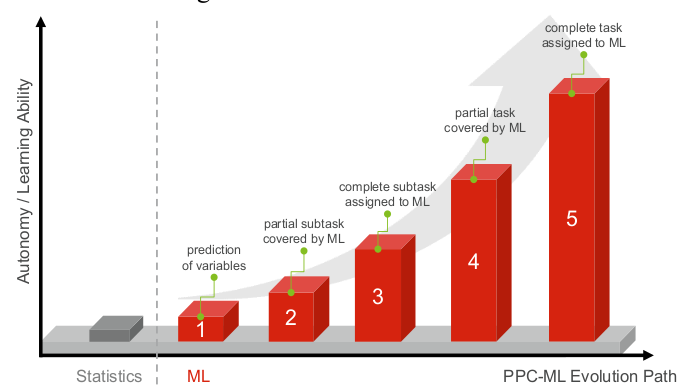2024
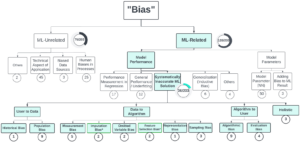
Gesa Götte; Oliver Antons; Andres Herzog; Julia C. Arlinghaus
Perception of biases in machine learning in production research Conference
KI 2024 - 47th German Conference on Artificial Intelligence. Würzburg, 25.-27.09.2024, Workshop Proceedings AI in Production - 1 Hochschule für Technik, Wirtschaft und Kultur Leipzig , 2024.
Abstract | Links | BibTeX | Tags: Articifial Intelligence, Cognitiv Bias, Human Decision-making, Machine learning, Production planning and control
@conference{nokey,
title = {Perception of biases in machine learning in production research},
author = {Gesa G\"{o}tte and Oliver Antons and Andres Herzog and Julia C. Arlinghaus},
url = {https://nbn-resolving.org/urn:nbn:de:bsz:l189-qucosa2-943157},
doi = {10.33968/2024.78},
year = {2024},
date = {2024-10-01},
urldate = {2024-10-01},
booktitle = {KI 2024 - 47th German Conference on Artificial Intelligence. W\"{u}rzburg, 25.-27.09.2024},
publisher = {Hochschule f\"{u}r Technik, Wirtschaft und Kultur Leipzig },
series = {Workshop Proceedings AI in Production - 1},
abstract = {Factories are evolving into Cyber-Physical Production Systems, producing vast data volumes that can be leveraged using computational power. However, an easy and sorrowless integration of machine learning (ML) can lead to too simplistic or false pattern extraction, i.e. biased ML applications. Especially when trained on big data this poses a significant risk when deploying ML. Research has shown that there are sources for undesired biases among the whole ML life cycle and feedback loop between human, data and the ML model. Methods to detect, mitigate and prevent those undesired biases in order to achieve ''fair'' ML solutions have been developed and established in tool boxes in the past years. In this article, we utilize a structured literature review to address the underappreciated biases in ML for production application and highlight the ambiguity of the term bias. It emphasizes the necessity for research on ML biases in production and shows off the most relevant blind spots so far. Filling those blind spots with research and guidelines to incorporate bias screening, treatment and risk assessment in the ML life cycle of industrial applications promises to enhance their robustness, resilience and trustworthiness.},
keywords = {Articifial Intelligence, Cognitiv Bias, Human Decision-making, Machine learning, Production planning and control},
pubstate = {published},
tppubtype = {conference}
}
2023
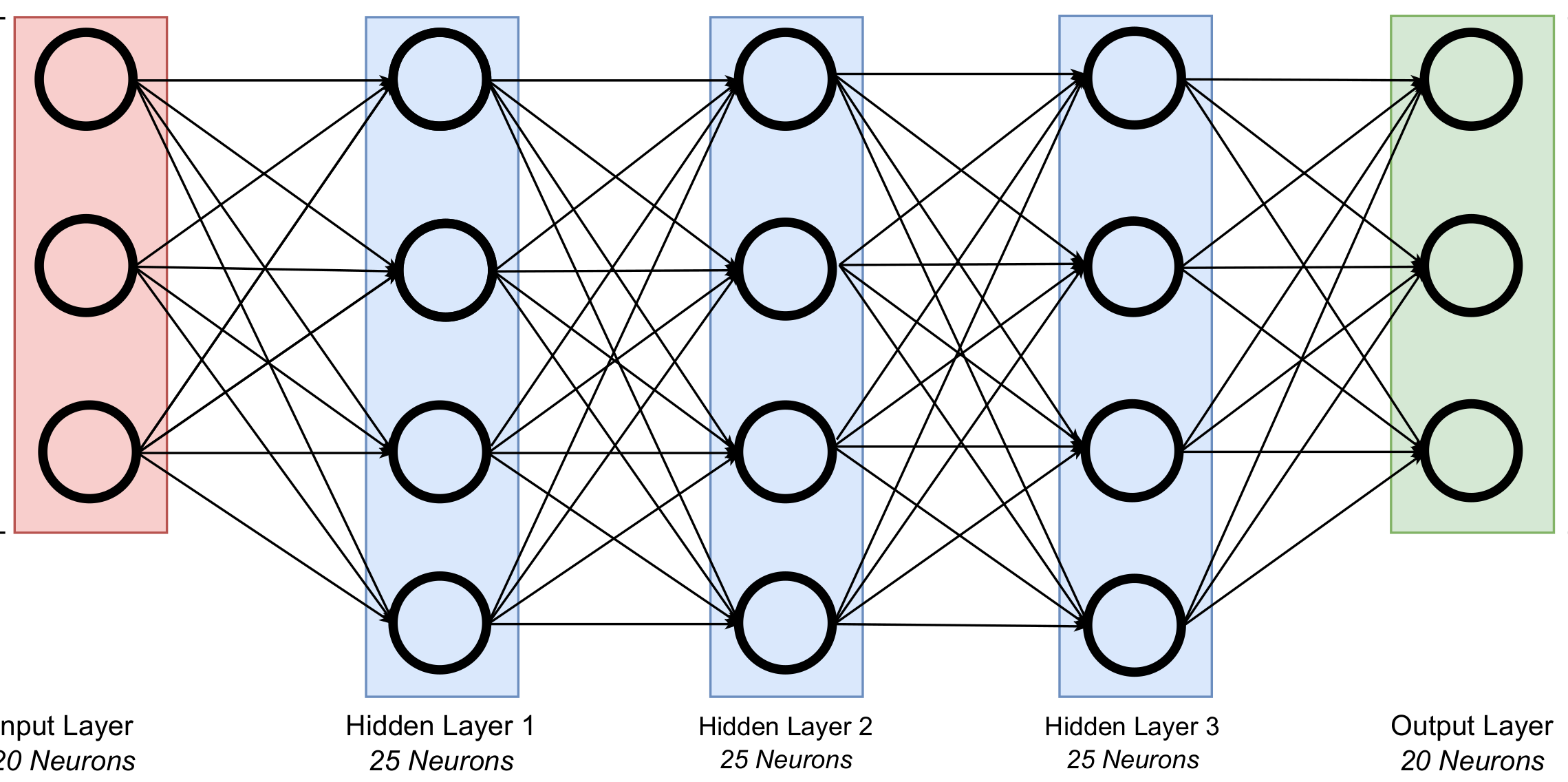
Oliver Antons; Julia C. Arlinghaus
Maximum Likelihood and Neural Network Estimators for Distributed Production Control Proceedings Article
In: IFAC-PapersOnLine , pp. 10327-10332, 2023, ISSN: 2405-8963, (22nd IFAC World Congress).
Abstract | Links | BibTeX | Tags: Autonomy & Decision-making Authority, Cyber-physical system, Distributed control, Machine learning, Production planning and control, Smart manufacutring systems
@inproceedings{nokey,
title = {Maximum Likelihood and Neural Network Estimators for Distributed Production Control},
author = {Oliver Antons and Julia C. Arlinghaus},
url = {https://www.sciencedirect.com/science/article/pii/S2405896323014210},
doi = {10.1016/j.ifacol.2023.10.1038},
issn = {2405-8963},
year = {2023},
date = {2023-07-14},
urldate = {2023-07-14},
booktitle = {IFAC-PapersOnLine },
volume = {56},
number = {2},
pages = {10327-10332},
abstract = {Cyber-physical systems have become increasingly common in recent years, providing a multitude of information regarding production processes. At the same time, increasing volatilities, uncertainties, complexity and ambiguity (VUCA) are challenging existing production control approaches for manufacturing networks. Data-driven control approaches are an avenue to address VUCA, but require further study in research and practice. We utilize a multi-agent based discrete-event simulation to compare the aptitudes of a maximum likelihood and neural network based estimator for distributed production control, and provide insights into application of machine learning to address ever increasing information and VUCA.},
note = {22nd IFAC World Congress},
keywords = {Autonomy \& Decision-making Authority, Cyber-physical system, Distributed control, Machine learning, Production planning and control, Smart manufacutring systems},
pubstate = {published},
tppubtype = {inproceedings}
}
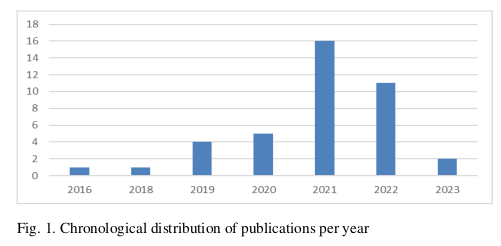
Konstantin Büttner; Oliver Antons; Julia C. Arlinghaus
Exploring Implementation Barriers of Machine Learning in Production Planning and Control Conference
vol. 120, 2023, (56th CIRP CMS 2023 - Manufacturing in an age of disruption).
Abstract | Links | BibTeX | Tags: Articifial Intelligence, Machine learning, Production planning and control
@conference{nokey,
title = {Exploring Implementation Barriers of Machine Learning in Production Planning and Control},
author = {Konstantin B\"{u}ttner and Oliver Antons and Julia C. Arlinghaus},
url = {https://www.sciencedirect.com/science/article/pii/S2212827123009435},
doi = {10.1016/j.procir.2023.09.211},
year = {2023},
date = {2023-00-00},
urldate = {2023-00-00},
volume = {120},
pages = {1546-1551},
abstract = {This paper studies the challenges encountered during the implementation of machine learning (ML) applications in production planning and control (PPC) functions of manufacturing companies. The application of ML in PPC promises numerous benefits, and several studies have revealed the positive impact of such an implementation on key performance indicators of production systems, such as lead time, due date reliability, and inventory levels. However, despite the theoretical potential and the increased research interest in the field over the last five years, practical applications remain rare and discourse on the existence of this gap between research and practice remains relatively sparse. In this paper, we identify general ML implementation barriers the manufacturing domain based on a structured literature review and evaluate the relevance of these barriers within the PPC domain by interviewing ML and PPC experts. This research is beneficial for practitioners and researchers who aim to implement ML applications in PPC by enabling them to evaluate the possible barriers and challenges during implementation projects within their organizations.},
note = {56th CIRP CMS 2023 - Manufacturing in an age of disruption},
keywords = {Articifial Intelligence, Machine learning, Production planning and control},
pubstate = {published},
tppubtype = {conference}
}
2022
Konstantin Büttner; Oliver Antons; Julia C. Arlinghaus
Applied Machine Learning for Production Planning and Control: Overview and Potentials Proceedings Article
In: 10th IFAC Conference on Manufacturing Modelling, Management and Control, pp. 6, Elsevier, 2022.
Abstract | Links | BibTeX | Tags: Control, Machine learning, Production control, Production Planning
@inproceedings{Buettner2022,
title = {Applied Machine Learning for Production Planning and Control: Overview and Potentials},
author = {Konstantin B\"{u}ttner and Oliver Antons and Julia C. Arlinghaus},
url = {https://www.sciencedirect.com/science/article/pii/S2405896322021152},
doi = {https://doi.org/10.1016/j.ifacol.2022.10.106},
year = {2022},
date = {2022-10-01},
urldate = {2022-10-01},
booktitle = {10th IFAC Conference on Manufacturing Modelling, Management and Control},
volume = {55},
number = {10},
pages = {6},
publisher = {Elsevier},
abstract = {Manufacturing companies are under constant pressure to increase efficiency and to achieve logistical objectives. Improving production planning and control (PPC) has significant impact on these efforts. At the same time, increasing complexity and dynamics of PPC environments make PPC more difficult. One way to cope with this situation is the application of machine learning (ML) methods. In this article, we therefore address the current state of PPC-ML research and show, based on the Aachen PPC model, in which PPC tasks and subtasks ML is already applied and to what degree the task is covered by ML. The analysis is limited to core and cross-sectional tasks of the Aachen PPC model, procurement and network tasks are not included. Furthermore, a broad analysis of the targeted data mining, business and logistic objectives is conducted. In addition, we also identify motivations which prompted researchers to apply ML in PPC. },
keywords = {Control, Machine learning, Production control, Production Planning},
pubstate = {published},
tppubtype = {inproceedings}
}
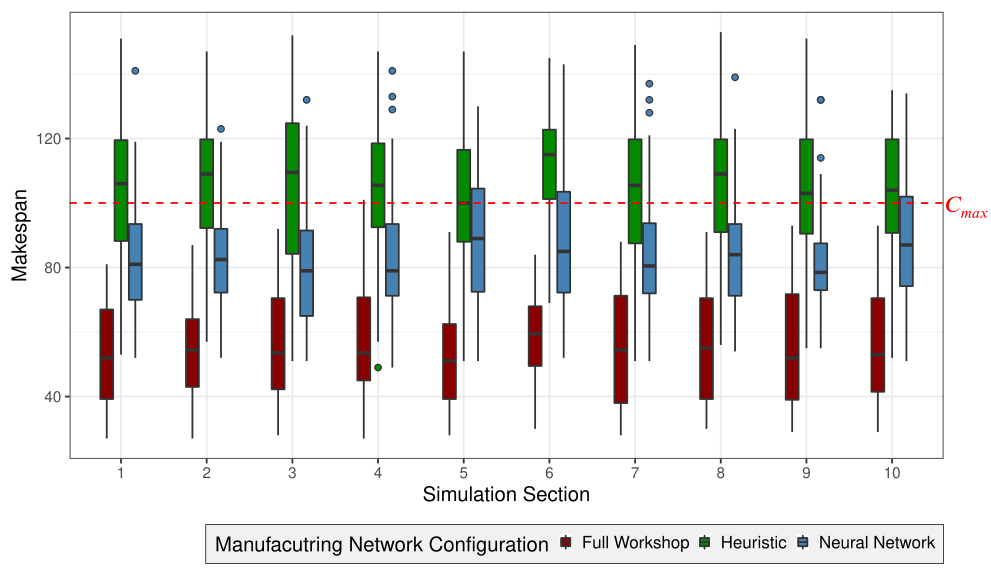
Oliver Antons; Julia C. Arlinghaus
Data-driven and autonomous manufacturing control in cyber-physical production systems Journal Article
In: Computers in Industry, vol. 141, pp. 103711, 2022, ISSN: 0166-3615.
Abstract | Links | BibTeX | Tags: Autonomous production control, Autonomy & Decision-making Authority, Machine learning, Neural network, Production planning and control
@article{ANTONS2022103711,
title = {Data-driven and autonomous manufacturing control in cyber-physical production systems},
author = {Oliver Antons and Julia C. Arlinghaus},
url = {https://www.sciencedirect.com/science/article/pii/S0166361522001087},
doi = {https://doi.org/10.1016/j.compind.2022.103711},
issn = {0166-3615},
year = {2022},
date = {2022-01-01},
urldate = {2022-01-01},
journal = {Computers in Industry},
volume = {141},
pages = {103711},
abstract = {Modern manufacturing networks consist of cyber-physical systems (CPS) which offer an array of interesting capabilities, ranging from local computation over data generation to communication capabilities. As traditional control approaches fail to fully leverage these capabilities, the last decade has seen a renewed interest in distributed control approaches based on autonomous entities. In this article, we study the synergistic potentials of autonomous control and machine learning in a job-shop setting, addressing challenges of modern manufacturing such as market fluctuation and process time variance, thus leveraging the potentials of CPS in order to flexibly configure manufacturing networks and achieve cost-minimal production. We utilize a multi-agent based discrete-event simulation to compare this novel approach to a traditional heuristic, underlining the potentials and advantages of data-driven control approaches.},
keywords = {Autonomous production control, Autonomy \& Decision-making Authority, Machine learning, Neural network, Production planning and control},
pubstate = {published},
tppubtype = {article}
}

Oliver Antons; Julia C. Arlinghaus
Machine Learning and Autonomous Control—A Synergy for Manufacturing Proceedings Article
In: Borangiu, Theodor; Trentesaux, Damien; Leitão, Paulo; Cardin, Olivier; Joblot, Laurent (Ed.): Service Oriented, Holonic and Multi-agent Manufacturing Systems for Industry of the Future, pp. 417–428, Springer International Publishing, Cham, 2022, ISBN: 978-3-030-99108-1.
Abstract | Links | BibTeX | Tags: Autonomy & Decision-making Authority, Distributed control, Machine learning, Manufacturing, Neural network
@inproceedings{10.1007/978-3-030-99108-1_30,
title = {Machine Learning and Autonomous Control\textemdashA Synergy for Manufacturing},
author = {Oliver Antons and Julia C. Arlinghaus},
editor = {Theodor Borangiu and Damien Trentesaux and Paulo Leit\~{a}o and Olivier Cardin and Laurent Joblot},
url = {https://link.springer.com/chapter/10.1007/978-3-030-99108-1_30},
doi = {10.1007/978-3-030-99108-1_30 },
isbn = {978-3-030-99108-1},
year = {2022},
date = {2022-01-01},
urldate = {2022-01-01},
booktitle = {Service Oriented, Holonic and Multi-agent Manufacturing Systems for Industry of the Future},
pages = {417\textendash428},
publisher = {Springer International Publishing},
address = {Cham},
abstract = {This papers studies the synergistic potentials of machine learning and distributed control approaches in a job-shop setting. We utilize a multi-agent based discrete-event simulation to model distributed control in conjunction with a neural network to predict the optimal workshop configuration given fluctuating production demands. Within this simulation model, we study the potential cost and time savings, showing various potentials in the synergistic utilization of distributed control and machine learning for production planning and control in a job-shop manufacturing network.},
keywords = {Autonomy \& Decision-making Authority, Distributed control, Machine learning, Manufacturing, Neural network},
pubstate = {published},
tppubtype = {inproceedings}
}
